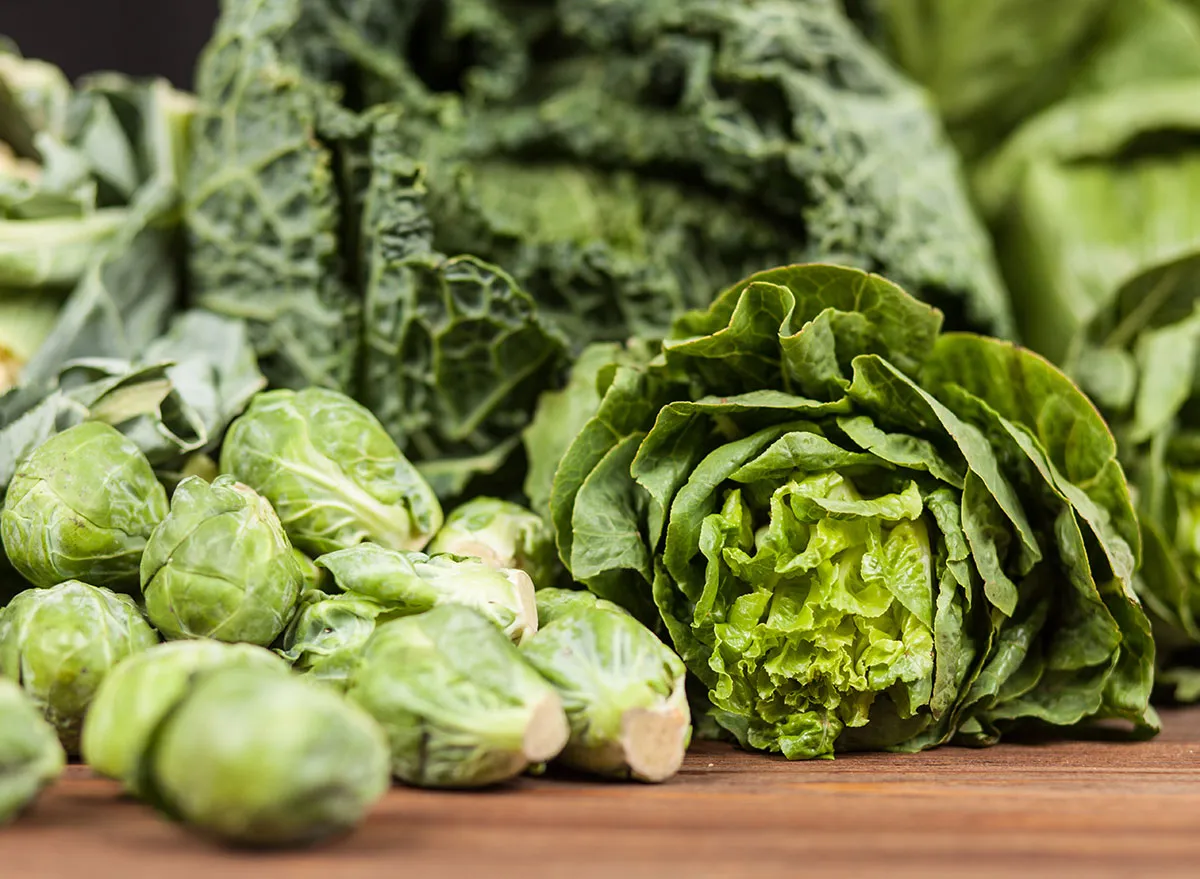It's not news that eating a plant-based diet can help reduce your risk of heart disease—plenty of evidence backs up the research. However, a recent meta-analysis that reviewed nearly 100 studies revealed that specific plant-based foods may have an especially strong effect at mitigating your risk of dying from various types of heart disease.
Heart disease is the leading cause of death in the U.S., according to the Centers for Disease Control and Prevention. Every year, more than 868,000 Americans die of heart disease, stroke, or other cardiovascular diseases. In the meta-analysis, which was published in Cardiovascular Research on July 6, researchers from the University of Naples explored the relationship between heart disease risk and dietary patterns.
More specifically, they looked at red meat, poultry, eggs, dairy, produce, nuts, and grains. As one might expect, the key takeaway was that consuming a diet rich in vegetables and low in meat was linked to a lower risk of dying from heart disease. But the findings went even further—they pinpointed specific foods that helped reduce the risk of coronary heart disease (CHD) and cardiovascular diseases (CVDs).

"As for vegetable types, high compared to low consumptions of green leafy vegetables and tomatoes are associated with a significant 17% and 10% reduction in the incidence of CHD, respectively," the researchers wrote.
The thought here is that when you eat less meat and increase your intake of leafy green vegetables and tomatoes, your risk of heart disease lowers. Tomatoes are rich in an antioxidant called lycopene, which has been shown to improve vascular function and help protect against disease.
Swapping out butter, which is rich in saturated fats, for something that's rich in monounsaturated fats like olive oil can also help reduce your risk of heart disease. In one evaluation, researchers found that increasing olive oil consumption by as little as 5 grams (for context, a tablespoon contains 13.3 grams) was associated with a 7% reduction of CHD incidence, a 4% reduction of CVD incidence, and an 8% reduction of death from CVD.
Researchers found that eating at least two servings of vegetables each and every day was associated with an up to 34% lower risk of dying from heart disease, with green vegetables and tomatoes yielding the most positive effects.
In addition, cutting back on both red meat and other processed meats (think bacon, prosciutto, salami, and sausage) to fewer than two servings per week can also help to protect your heart. Reducing your intake of alcohol may help to preserve heart health, too.
No comments:
Post a Comment